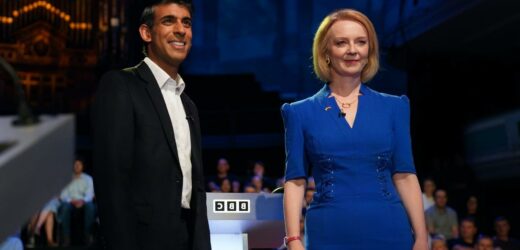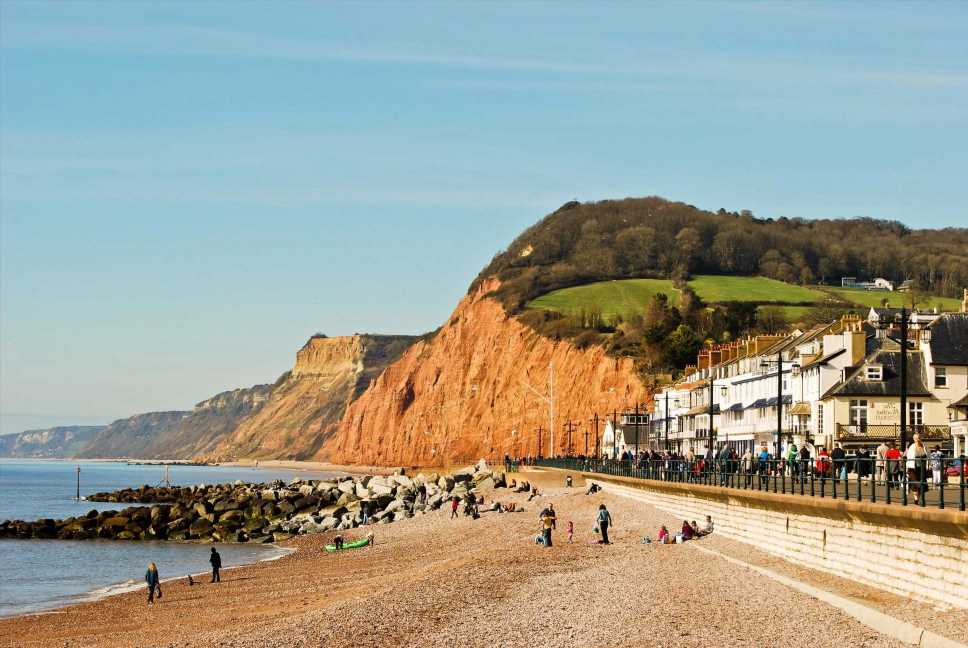Written by Amy Beecham
Some of the biggest political issues of the day were on the table during the BBC’s live debate last night, with some notable absences.
Last night (25 July) marked the first in a series of live Conservative leadership debates and saw candidates Liz Truss and Rishi Sunak go head to head on key political issues.
Hosted by the BBC’s Sophie Raworth, foreign secretary Truss and former chancellor Sunak answered questions on Brexit, the cost of living crisis and the climate emergency ahead of a ballot to elect the new Tory party leader, a decision that should be announced by 5 September.
Healthcare, housing, education and immigration were topics notably absent from the debate, but are expected to be tabled during later discussions. So what were the key clashes?
There was conflict over how to handle the economy amid a cost of living crisis
With inflation hitting a 40-year high and energy bills expected to further soar this winter, economic policy was understandably a large part of the night’s debate.
Both Sunak and Truss attacked each other’s tax plans, with Truss saying that the UK was heading for a recession if the country followed Sunak’s economic plans of only cutting taxes once inflation was under control.
On Truss’s economic plans, which include about £30 billion in immediate tax cuts, Sunak said: “I don’t think that’s right, I don’t think that’s responsible, and I certainly don’t think it’s Conservative.”
In the first question from the audience, both candidates were asked whether they would provide more help with soaring bills if they become prime minister.
In response, Sunak pointed to his record as chancellor, saying: “When we get in we will have to see what happens to energy bills. As the situation changes on the ground, I am always going to support people through it.”
However, he made no specific promises with regard to increasing cost of living payments or modifying welfare packages.
Truss also vowed to put an economic growth plan in place “immediately” if she becomes prime minister, adding that she would reverse the planned National Insurance hike and impose a temporary moratorium on the green energy levy “which would help cut money from fuel bills”.
Truss later accused Sunak of “scaremongering” for warning about the impact of her economic plans on mortgage rates, stating: “I’m sorry, this is scaremongering. This is Project Fear.”
The climate crisis finally got a (small) mention
After criticism that none of the eight leadership candidates had mentioned the worsening climate crisis in their preliminary manifestos, Sunak and Truss were asked what they thought the three most important things were that people could do for the environment.
Truss pointed to her past as a “teenage eco-warrior campaigning against damage to the ozone layer”, saying: “I’ve always taken the view that we should save our resources. I’m naturally a thrifty person; I like saving money and it also helps the environment.”
Citing electric vehicles and better home insulation, she continued: “So it’s about using less, particularly wasting less – which I think is a massive problem in this country – but also the innovation that we need to get the new technology that can help us do things better.” She also said that she would look for “better ways to deliver on that net zero” as part of theParis climate agreement.
Sunak, however, said that he takes his advice from his daughters, and their first piece of advice is “reducing energy usage through things like better energy efficiency”.
He also mentioned recycling and a “focus on innovation” to solve the problem with “our researchers, inventors, companies”.
Both candidates said there would be no space for Boris Johnson in their cabinet
When asked about theoutgoing prime minister, Truss stayed firm in her loyalty to Boris Johnson, praising the “brilliant job” he did winning the 2019 general election.
Controversially, she also said that the “mistakes” he made in office – including hosting lockdown-breaking parties and promoting MP Chris Pincher despite misconduct allegations – were not “sufficient” for the Tory party to “reject” him and should not have brought him down.
Sunak, however, whose resignation as chancellor triggered a mass walkout from the cabinet, said that he had decided that “enough was enough” and insisted he would not employ Johnson in his own Cabinet.
Asked the same question whether she would give Johnson a role in her Cabinet, Truss said that she didn’t think it was “going to happen” as he “needs a well-earned break from what has been a very difficult few years”.
As the debate came to an end, a snap poll of Conservative voters by Opinium found that 47% thought Truss had performed better than Sunak, as opposed to 38% who favoured the former chancellor.
The next debate is scheduled for Thursday 4 August at 8pm, hosted by Kay Burley in front of a live audience.
Images: BBC/Getty
Source: Read Full Article



